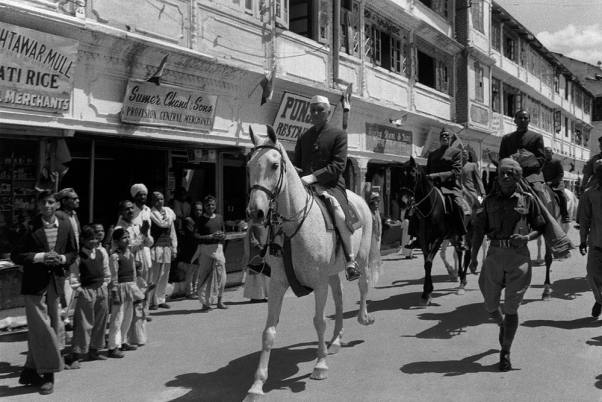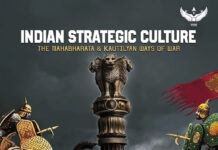
Who is responsible? Clearly, it is the sedimentation of 900 years of Muslim and British rule, compounded by the apologetic lack of national pride in the Nehru-Gandhi era of six decades. When USA got Independence, in 1776, they discarded everything British – form of government, driving on the left, tea, formality in attire and conduct, dogs as pets, cricket, billiards, rugby, etc, replacing them with their own alternatives and adopting coffee, cats, baseball, football and pool, etc. When India got Independence in 1947, Congress leadership merely amended “President” for the “Crown” in all legislative, administrative and legal procedures. India transferred her slavery from Stuart Dynasty to the Nehru Dynasty. The same suppression of nationalist enterprise, the same master-slave governance, the same police-control and the same neglect of health, education and welfare continued for 60 years. It shall take at least one generation of cleansing of the mind to revive self-pride among Indians. A nation that once dominated the globe in education, sciences, social-culture, trade and commerce is not just blissfully ignorant of its glorious past, it is right-royally ashamed of it. Anybody but Nehru, as the first prime minister of India, would have ensured India became a global force, with veto power in the UN, the Rupee trading at par with pound sterling, its passport valued more than that of Japan and Hindi as an official language in international fora. Oh Fate! Thou art so wicked!!
What is the way forward? India’s young minds, poisoned from kindergarten onwards with false history and sense of inferiority, are slowly becoming aware and breaking their shackles. A lot needs to be done to overhaul systems inherited from the Mughals and the Raj. Restoration of faith in India’s rich heritage can be done only when false history and propaganda is eradicated. History of contemporary and medieval India must reflect the events as they truly occurred. The role of stalwarts other than Nehru-Gandhi, viz, Netaji Bose and his Azad Hind Fauj, Veer Savarkar, etc, in India’s freedom struggle; the cruelty of rulers like Akbar and Tipu Sultan; the sacrifices of Sikh-Gurus in fighting Islamisation; the contribution of non-dynastic Congress leaders like Sardar Patel, Lal Bahadur Shastri, PV Narasimha Rao, et al, needs to be acknowledged in history; the nepotism and corruption of the Nehru-Gandhi dynasty needs to be highlighted, along with their limited but over-hyped contribution to India’s sputtering growth; the reasons and lessons of the Emergency of 1975 must be an important chapter in Indian History taught in schools.
There needs to be some forceful thrusting of national pride in India’s business and industry. Not just cities, roads and localities bearing foreign legacy must be renamed. All condominiums, products, produces, models and enterprises should bear ethnic names, within a set time-table. English should be replaced with Hindi as the official link language. Opposition to this should be overcome with education, motivation, appeal and, if necessary, by force of legislation. Nationalism must be enforced where it does not come naturally. Respect for the national anthem, national flag and other national symbols must be rigidly enforced. These cannot be disrespected under camouflage of secularism. Hate speeches or social-media posts against the security, sovereignty, integrity or secularity of India must be suppressed with a heavy hand. Rights like Freedom of Speech and Religion must be taught in all schools to define their boundaries under the Constitution.
India needs to occupy its rightful place as leader of the world, it once was. No longer can heritage be the only aspect of pride for an Indian. The world has much to learn, from India, in all fields of human endeavour. India’s mental-slavery is as conducive to India’s security as nudity is to a woman’s modesty!!
Samples of mental-slavery in day-to-day life in modern India
While Anglicised city names have been restored, roads, buildings and institutions continue to bear colonial names. Metropolises have been renamed but their High Courts are not. There is monetary incentive for renaming cities – huge contracts are doled out for repainting city names at railway stations, airports, milestones on highways, etc, and reprinting railway time-tables, office stationery etc. There is no such opportunity for appropriation of public money in renaming roads and complexes in cities and towns of India. Also, renaming has been confined only to Anglicised names and Muslim city names has been avoided, till recently. This has less to do with mental-slavery and more with appeasement politics.
In food habits, dance and music too, Indians are going more western than the westerner, who is edging towards Indian cuisine and vegetarianism. This tilt is not because Western cuisine, dance or music is superior to India’s, it is just a question of shame in being Indian.
True, some brands are of foreign origin and have penetrated Indian markets by dint of their quality and class but it is also common practice to alter brand-names to appease local pride. Japan adopted Panasonic and English model-names for their cars. Suzuki is sold as Maruti in India. India too could sell their products under Indian names and make their products popular worldwide through quality and value-for-money. Exotica has its own attraction.
Names of Roads and Landmarks:
Bengaluru – Richmond Circle, Cox Town, Langford Town;
Kolkata – Piccadilly Square and Elgin Road;
Chennai – Pycrofts Road, Elliot’s Beach;
Puducherry – Goubert Avenue, L’eveche St, Surcouf St;
Mumbai – Flora Fountain, Cuffe Parade, Wodehouse Road;
Ironically, New Delhi (not Nai Dilli) has the least English names owing to compulsion of naming of roads and institutions after world leaders and the Nehru-Gandhi family.
While Travancore became Kerala, Madras State became Tamil Nadu, Cawnpore became Kanpur, it took many decades before Allahabad could become Prayagraj and Faizabad became Ayodhya.
There is vociferous opposition to renaming cities with Muslim names back to their ethnic names. There is no ripple when ethnic names are surreptitiously replaced with Muslim names, even five decades after Independence. Indians are barely aware of:
Indur becoming Nizamabad and Elagandla renamed Karimnagar, both in Telangana;
Khadki became Aurangabad in Maharashtra;
Kundinapuram became Ameenabad in Andhra Pradesh;
Lakshminagar renamed Muzzaffarnagar in 1986 in Uttar Pradesh etc.
Over a hundred places in India need to be reverted to their ethnic names – Ahmedabad, Ghaziabad, Faridabad, Moradabad, to cite a few.
Food Habits:
In public, we prefer pastry to laddu, burger to kachori and ice-cream to kulfi.
India’s reality dance-shows on TV abound in hip-hop, crunching-n-popping, robotics and salsa with nary a performance of bharat-natyam, kathak, odissi, manipuri or mohiniyattam – by far the superior and more intricate dance forms.
In music, Indians have all but forgotten the sitar, sarangi, tabla and bansuri for guitar, drums, clarinet and saxophone. Even in songs, western influence of rap, pop and rock is overshadowing sugam sangeet and Hindustani music.
Relations:
Families and friends calling elders by name, addressing relatives by the generic uncle/auntie rather than the relation-specific chacha, bua, mausi, mama, etc; using Mom and Dad rather than maa and pitaji, are loud pointers to a deeply ingrained feeling of inferiority in our ethnic systems and culture.
Brands:
Tongue-twister names like Mitshubishi, Matsushita, Toshiba, etc, were not changed by Japan to appease the Americans, despite Marshall Aid after Hiroshima-Nagasaki; and Samsung, Hyundai, Daewoo etc are as Korean as they come. Indian psyche tells a different story. A sample of the shame in being Indian in trade and business is:
• Fabrics are branded Peter-England, Van Heusen, Allen Solly, Louis Philippe;
Food Products: Indians use Kelloggs, Cadbury, Nestle, Cerelac, Lactogen, Farex, Weikfield, Fortune, Horlicks, Bournvita, Complan, Pediasure, Tropicana, Real Juice, Kinley, Aquafina, Sprite, Fanta, Miranda, Lipton, Nescafe, Pillsbury….But sneer at Dabur, Patanjali, Aashirvaad, etc.
Toiletry: Ponds, Nivea, Cinthol, Lux, Lakme, Park Avenue, John VI, Axe, L’Oreal, Sunsilk, Garnier, Colgate, Sensodyne, Listerine, Oral B, Whisper, Stayfree, Gillette, Surf, Rin, Tide, etc, are OK but not Dant-Kanti, Himalaya, Ayush or Himani.
• Automobile models are:
• Tata (Harrier, Nexon, Tiago, Altroz).
• Hero (Splendor, Passion, Glamour).
• Maruti (Dzire, Ertiga, Ciaz, Brezza).
• TVS (Jupiter, Apache, Victor).
• Apartment Complexes are called:
• Godrej (Prive, Exquisite, Rivergreens)
• Prestige (Finsbury Park, Elysian).
• Nitesh (Hyde Park, Columbus Square).
• Sobha (Clovelly, Palm Court, Orion).
• Puravankara (Whitehall, Somerset House, Venezia).
• DLF (Ultima, Primus, Crest).
Some Indian products and brands like, TATA, Amul, Haldirams, Himalaya, ITC, Nirma, Parle, Vadilal, chai, basmati, ghee, etc, have brought India some international recognition. Why should Indian companies be called Britannia, Colgate, Pidilite, Cavin Kare, Proctor &Gamble, etc, when law requires at least 51% Indian equity in all foreign or multi-national business enterprises? It is a challenge to find more than 10 Indian brands in any field of Indian commerce.
Even in architecture, India has aped the West with total disregard to India’s tropical climate, so ill-suited to low-ceiling, glass-facade high-rises, requiring air-conditioning with attendant greenhouse-gas emissions. This, as opposed to the traditional designs of high-ceilinged, airy havelis or buildings circumvented by verandahs. Even invaders did not construct any building with western designs. This craze is driven by India’s phoren-returned mental-slaves determined to create an America within India. Vijay Mallya’s UB Towers in Bengaluru is testimonial to this slavish mind-set.
India’s film industry, about five times the size of Hollywood and producing as good a cinema as any in the world, is not ashamed of being called Bollywood, Tollywood, Kollywood, etc, like some cheap isotopes of the original. Hindi TV channels are called Star, Zee, Sony, Colours, Zoometc instead of some Hindi names.
Indians happily share their “privacy” details with Facebook, WhatsApp, Twitter, TikTok and a host of parasitic foreign apps but are averse to sharing fewer details for Aadhar Card and AarogyaSetu, an app hailed worldwide, for protection from Covid-19!!


















[…] ALSO READ: Ignorance and Mental Slavery Impedes National Security (Part 2) […]